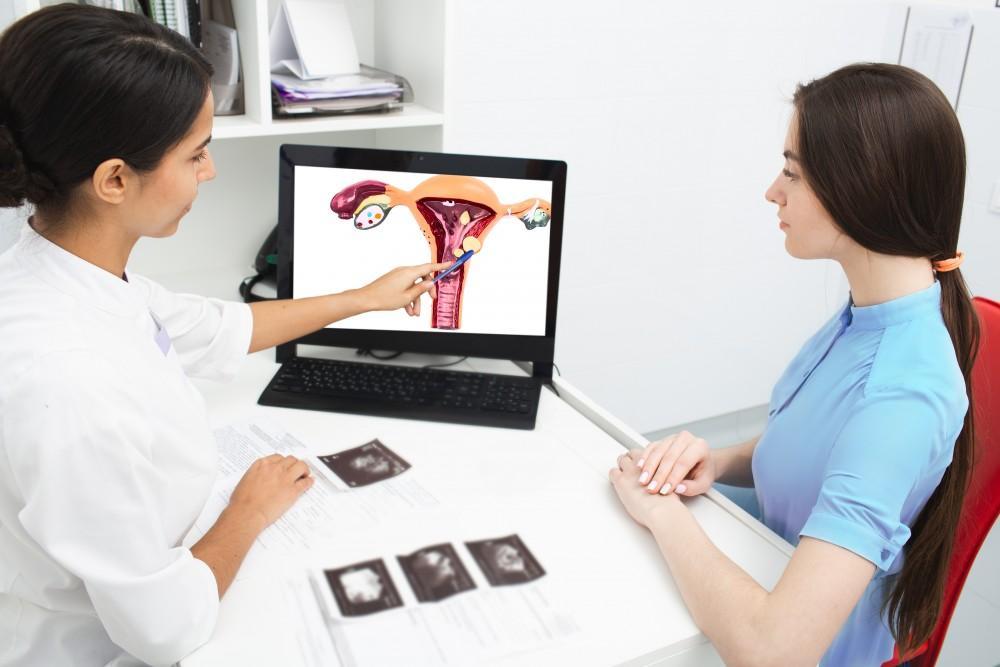
What to Expect From Your First 3D Mammogram
A mammogram is an X-ray of your breasts. It’s the best way to identify early...
Read MorePCOS, or polycystic ovary syndrome, occurs due to a hormonal imbalance. It can cause irregular menstrual cycles, infertility, and appearance changes. PCOS also can put you at a higher risk of certain diseases, including Type 2 diabetes and gestational diabetes, heart disease, high blood pressure, and sleep apnea.
If you’ve been diagnosed with PCOS, know you’re not alone. PCOS affects up to 5 million women of reproductive age in the United States.
Sadly, there is no cure for polycystic ovary syndrome. But there are a number of therapies that can help you manage the symptoms and overcome infertility.
PCOS is diagnosed when you have an imbalance of reproductive hormones. Usually, a woman has a high level of androgens, or male hormones, that cause problems in the ovaries. This interferes with the egg that your ovaries release each month that is responsible for your menstrual cycle or pregnancy.
You may develop small, fluid-filled sacs in the ovaries, too. Irregular menstrual cycles, weight gain, and thinning hair (in the form of male-pattern baldness) are symptoms of PCOS. You may also grow hair in places where men usually have hair, such as on your face or chin. Acne and skin tags can also develop.
Women with PCOS don’t always have all of these symptoms.
PCOS does not have a cure, but the team at The Women’s Center can help you develop a treatment plan based on your symptoms, your plans for a family, and your long-term health concerns. PCOS symptoms can certainly be managed.
On your own, you can lose weight with healthy eating habits and regular physical activity. Achieving a healthy weight can also help reduce your risk of developing Type 2 diabetes, make your menstrual cycle more regular, and increase your chances of getting pregnant. Hair removal methods, such as creams or waxing, can help address unwanted facial hair.
We may recommend hormonal birth control methods to help regulate your menstrual cycle and lower your risk of endometrial cancer. Hormonal birth control can also improve symptoms such as acne and extra hair on your face.
If you’re trying to get pregnant, losing weight is your first step if you’re overweight or obese. Certain medications that help you ovulate, specifically clomiphene, may also help you get pregnant. If clomiphene doesn’t work, we may recommend in-vitro fertilization, a procedure in which your eggs are fertilized with your partner’s sperm in a laboratory and placed into your uterus.
For women at a higher risk of Type 2 diabetes, metformin — a drug used in diabetes treatment — may help with PCOS symptoms. The drug can improve insulin’s ability to lower your blood sugar and decrease your androgen levels. You may restart ovulation while on metformin, but it won’t necessarily improve other symptoms, such as acne and extra hair on your face and body.
PCOS is quite manageable, and the expert staff at The Women’s Center can help. Call one of our offices in and around Orlando, Florida, or schedule using this website to learn about your treatment options.




A mammogram is an X-ray of your breasts. It’s the best way to identify early...
Read More
About 1 in 10 women has ovarian cysts. These small growths form on your ovaries,...
Read More
If you and your partner have decided you’re ready to start growing your family, you’re...
Read More